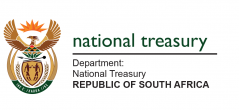
National Treasury has published its Policy Position Statement titled, 'A Simpler, Stronger Financial Sector Ombud System', which outlines proposed reforms to the ombud system.
The Policy Position Statement follows the publication of a World Bank Diagnostic Study in 2021 titled, 'South Africa - Financial Ombud System Diagnostic'.
“The study provided an independent review of South Africa’s financial ombud system and recommended reforms to enhance consumer protection and encourage good quality outcomes in the financial services sector,” National Treasury said on Thursday.
Prior to the diagnostic study, an earlier discussion document titled, 'A Known and Trusted Ombud System for All (2017)', had proposed initial reforms to the ombud system, which were later included in the Financial Sector Regulation (FSR) Act (Act 9 of 2017), as part of the Twin Peaks financial sector regulatory reform.
National Treasury said the publication of the policy position is a necessary step to communicate and publish its Policy Position Statement and accompanying detailed feedback statement, including an implementation plan.
“This publication also provides a response to consultation comments, and enables ombud schemes and the Ombud Council to work towards implementing a reformed structure,” National Treasury said.
Key elements of the proposed reform that National Treasury supports include:
- Structural reform of the ombud system, that will reduce the seven ombud schemes to two:
- A new, consolidated ombud scheme: National Financial Ombud (NFO) – a new body, independent of industry and government, replacing 6 of the current 7 schemes (all the industry schemes plus the FAIS Ombud).
- A Retirement Funds Ombud (RFO) – a renamed and reformed Pension Funds Adjudicator, with a board to underpin its independence and oversee its efficiency and effectiveness. National Treasury considers that it would be too complex a transition for the NFO to absorb the work of the RFO at this stage. However, this is likely to happen in the medium term, once the NFO has been up and running for a while.
- A modified Ombud Council – modifications to the title and appointment of its chief executive and (later) a review of its powers in the light of the simplification of the ombud system.
- Improved consistency across the ombud system on visibility and accessibility, eligibility of complainants, processes, powers and enforceability of decisions, and improved coverage to significantly reduce jurisdictional gaps and overlaps
“Full implementation of the above reforms will require legislative amendments. In the interim, National Treasury notes and welcomes the voluntary amalgamation, in consultation with the Ombud Council, of four of the current industry schemes (Credit, Banking, Long-term Insurance and Short-term Insurance) to form a new, streamlined industry scheme, the National Financial Ombud Scheme South Africa (NFO).
“The NFO is expected to commence operations on 1 March 2024, after recognition by the Ombud Council. This is an important step towards the broader reforms outlined in the policy position and will simplify their implementation,” National Treasury said.
The following documents are available on the website of the National Treasury at www.treasury.gov.za:
- Annexure A: A Simpler, Stronger Financial Sector Ombud System: Policy Position Statement.
- Annexure B: A Simpler, Stronger Financial Sector Ombud System: Feedback Statement.
- SAnews.gov.za


